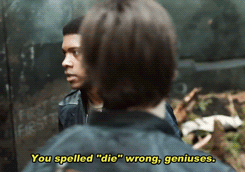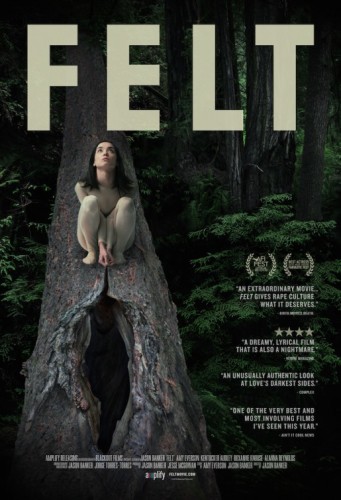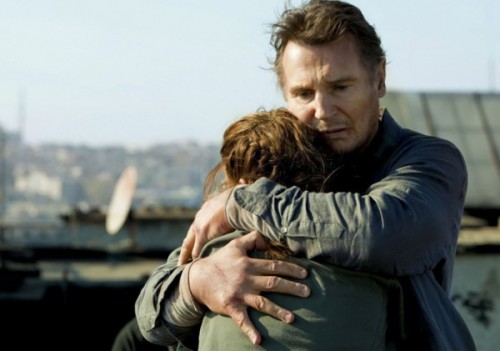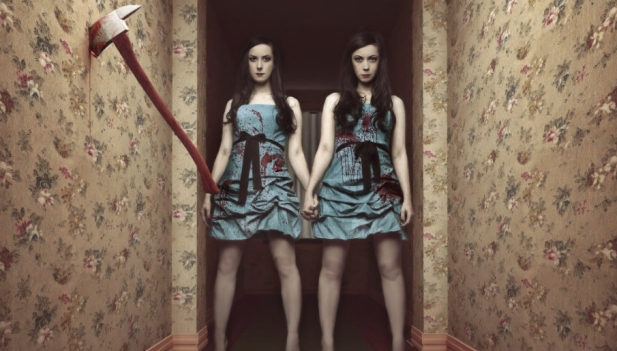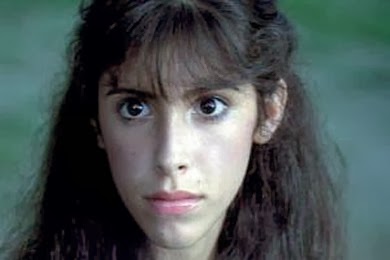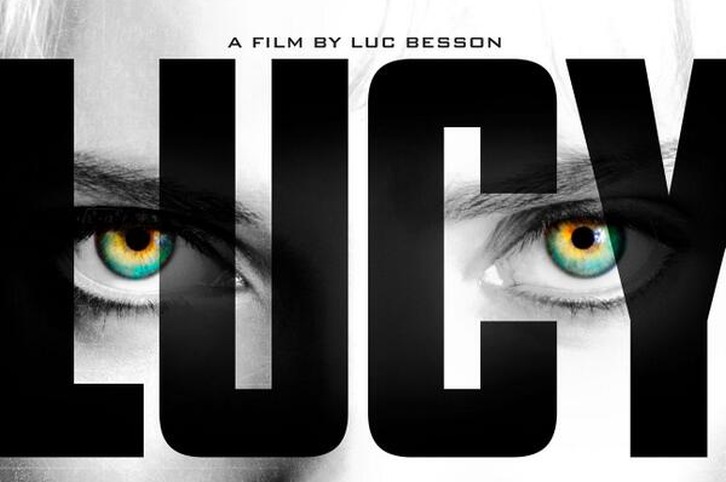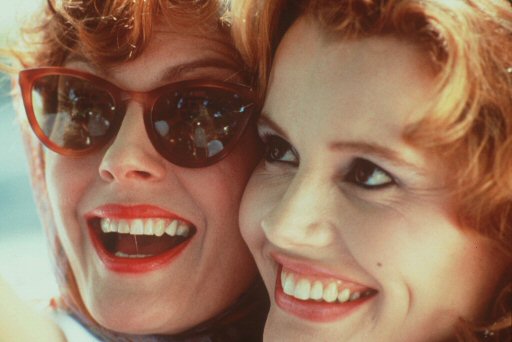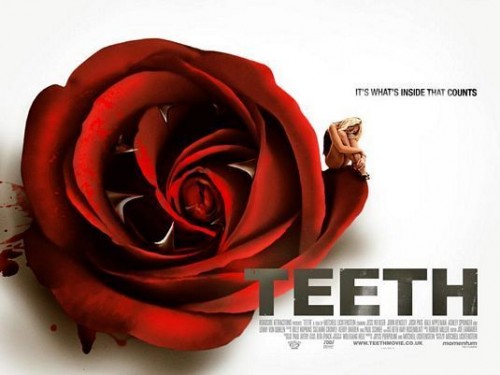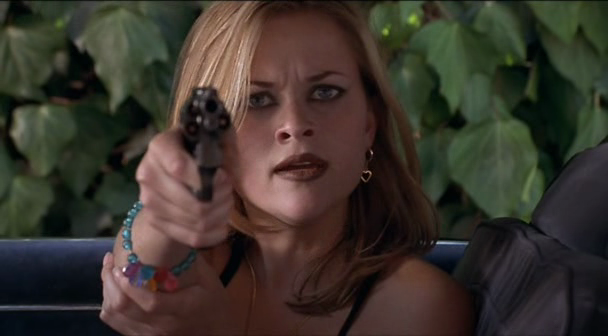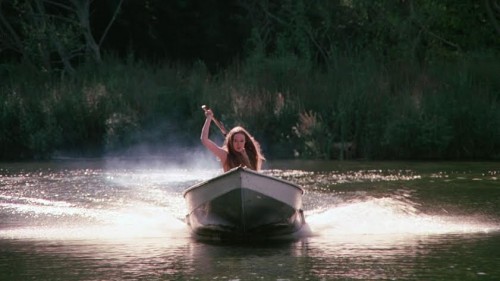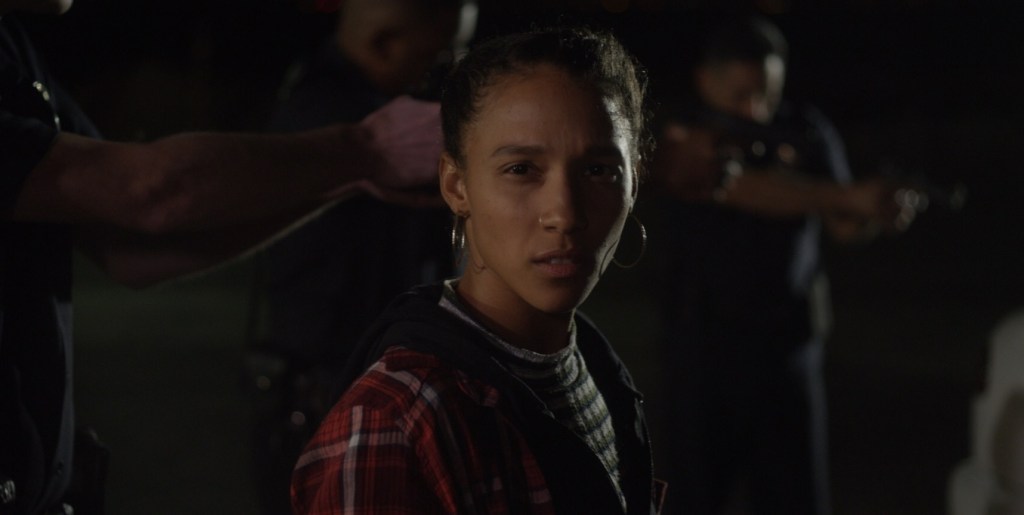TV and Classic Literature: Is ‘The 100’ like ‘Lord of the Flies’?
On the contrary, Octavia moves away from the explicit sexuality of her role in the pilot, and although her initial training is linked to Lincoln, she gravitates toward a warrior’s life to gain the respect of Indra. Although some critics have seen this as a drastic change in her characterisation, looking back at her first scene in the pilot, where she is held back by Bellamy while trying to attack the others for repeating rumours about her, it feels more like a development.
